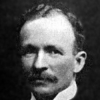Charles W. Chesnutt

Charles W. Chesnutt
Charles Waddell Chesnuttwas an African-American author, essayist, political activist and lawyer, best known for his novels and short stories exploring complex issues of racial and social identity in the post-Civil War South. Many families of free people of color were formed in the colonial and early Federal period; some attained education and property; in addition there were many mixed-race slaves, who as freedmen after the war were part of the complex society of the South. Two of his books were...
NationalityAmerican
ProfessionNovelist
Date of Birth20 June 1858
CountryUnited States of America
There's time enough, but none to spare.
Those that set in motion the forces of evil cannot always control them afterwards.
Impossibilities are merely things of which we have not learned, or which we do not wish to happen.
As man sows, so shall he reap. In works of fiction, such men are sometimes converted. More often, in real life, they do not change their natures until they are converted into dust.
I think I must write a book. It has been my cherished dream and I feel an influence that I cannot resist calling me to the task.
The workings of the human heart are the profoundest mystery of the universe.
The workings of the human heart are the profoundest mystery of the universe. One moment they make us despair of our kind, and the next we see in them the reflection of the divine image.
There are sordid souls that eat and drink and breed and die, and imagine they have lived.
We sometimes underestimate the influence of little things
We are all puppets in the hands of fate and seldom see the strings...
Race prejudice is the devil unchained.
Selfishness is the most constant of human motives. Patriotism, humanity, or the love of God may lead to sporadic outbursts sweep away the heaped-up wrongs of centuries; but they languish at times, while the love of self works on ceaselessly, unwearyingly,burrowing always at the very root of life, and heaping up fresh wrongs for other centuries to sweep away.
Sins, like chickens, come home to roost.
We make our customs lightly; once made, like our sins, they grip us in bands of steel; we become the creatures of our creation.